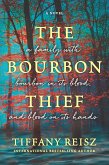Anne Finger
A Woman, in Bed
15,99 €
inkl. MwSt.
Versandfertig in über 4 Wochen

8 °P sammeln
Anne Finger
A Woman, in Bed
- Broschiertes Buch
- Merkliste
- Auf die Merkliste
- Bewerten Bewerten
- Teilen
- Produkt teilen
- Produkterinnerung
- Produkterinnerung
Simone sleeps with strangers. The most important stranger? Her husband Jacques. A love story spanning WWI to WWII in Paris.
Andere Kunden interessierten sich auch für
![Bed in Heaven Bed in Heaven]() Tessa De LooBed in Heaven11,99 €
Tessa De LooBed in Heaven11,99 €![The Paris Maid: Totally heartbreaking and gripping World War Two historical fiction The Paris Maid: Totally heartbreaking and gripping World War Two historical fiction]() Ella CareyThe Paris Maid: Totally heartbreaking and gripping World War Two historical fiction13,99 €
Ella CareyThe Paris Maid: Totally heartbreaking and gripping World War Two historical fiction13,99 €![Bed of Flowers Bed of Flowers]() Erin SatieBed of Flowers13,99 €
Erin SatieBed of Flowers13,99 €![Seven Nights in a Rogue's Bed Seven Nights in a Rogue's Bed]() Anna CampbellSeven Nights in a Rogue's Bed7,49 €
Anna CampbellSeven Nights in a Rogue's Bed7,49 €![Alice in Bed Alice in Bed]() Judith HooperAlice in Bed18,99 €
Judith HooperAlice in Bed18,99 €![A Lady Cyclist's Guide to Kashgar A Lady Cyclist's Guide to Kashgar]() Suzanne JoinsonA Lady Cyclist's Guide to Kashgar14,99 €
Suzanne JoinsonA Lady Cyclist's Guide to Kashgar14,99 €![The Bourbon Thief The Bourbon Thief]() Tiffany ReiszThe Bourbon Thief15,99 €
Tiffany ReiszThe Bourbon Thief15,99 €-
-
-
Simone sleeps with strangers. The most important stranger? Her husband Jacques. A love story spanning WWI to WWII in Paris.
Produktdetails
- Produktdetails
- Verlag: Lee & Low Books
- Seitenzahl: 304
- Erscheinungstermin: 5. Juni 2018
- Englisch
- Abmessung: 226mm x 155mm x 33mm
- Gewicht: 567g
- ISBN-13: 9781941026748
- ISBN-10: 1941026745
- Artikelnr.: 47749204
- Verlag: Lee & Low Books
- Seitenzahl: 304
- Erscheinungstermin: 5. Juni 2018
- Englisch
- Abmessung: 226mm x 155mm x 33mm
- Gewicht: 567g
- ISBN-13: 9781941026748
- ISBN-10: 1941026745
- Artikelnr.: 47749204
Activist, educator, and cultural worker Anne Finger has long been prominent in the U.S. disability movement. The author of three volumes of fiction and two memoirs, she has served as President of the Society for Disability Studies, written for Disability Studies Quarterly, and contributed to countless disability anthologies and conferences; at present, she is the board president of AXIS Dance Company, an organization started by disabled people. In 2019, she was the Holtzbrinck Fellow at the American Academy in Berlin. In addition to disability-specific work, her career of activism extends from the 1960s peace movement to the Occupy movement: she has marched on the Pentagon and helped to shut down the Port of Oakland. Finger's first book, the 1988 story collection Basic Skills, contains several disability-themed works, two of them drawing on her childhood experiences of polio. Her 1990 memoir Past Due: A Story of Disability, Pregnancy, and Birth, integrates accounts of her early life, her social activism, and her experiences at the hands of the medical profession, both as a polio survivor and as the mother of a baby in intensive care. In the process it explores the impact of sexist and ableist oppressions on her life and mind, and dramatizes her struggles with them. Her 1994 novel Bone Truth, incorporating a number of autobiographical elements, tells a story of a woman considering motherhood and struggling to frame a narrative explaining her own life and her difficult parents, particularly her abusive father. Among many other things, it is a historical critique of masculinism on the Old and New Left. With 2006's Elegy for a Disease: A Personal and Cultural History of Polio, Finger produced an anti-individualist memoir, one that integrates her own experiences and feelings into a wealth of social and historical contexts. The stories collected in her 2009 Call Me Ahab, like Elegy, aspire to reveal the breadth of disability culture. The volume is a postmodern tour de force that re-envisions the experiences of legendary disabled characters from art, fiction, and history, through a disability-justice perspective.







